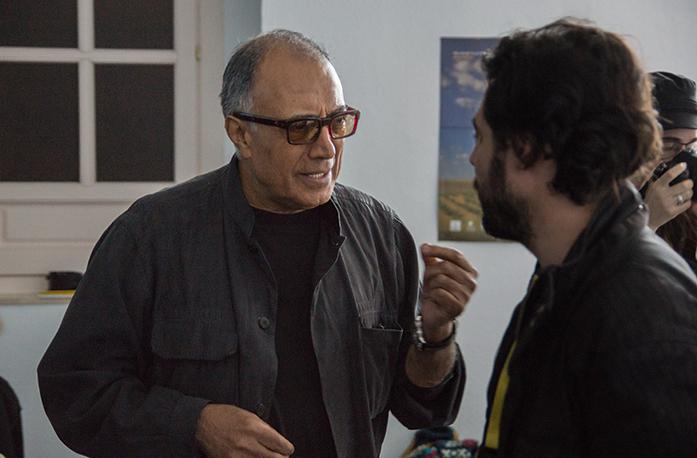By Amin Bagheri
The news reads: Abbas Kiarostami, an award-winning film director, died at the age of 76; it is truly a wonder that he made such great films in the hostile, censor-ridden environment of Iran. Perhaps this is not the best way to remember this director; were Kiarostami alive, he would have begged to differ. In one of his interviews (UI cinema exclusive), he is asked what he wishes to remain of him after he is gone. He chuckles and answers that he would prefer himself, than his works, to live. Not that his works were of no importance to him, but the values that he stood for should live on.
Remembering Kiarostami in relation to censorship is remembering the mechanics of his life, not his disposition. What he did was remarkable, but we have forgotten that he was the orchestrator of his works; it is his character that must be honored and exalted.
Publications have begun emphasizing Kiarostami’s brilliance in working in a censor-ridden framework and still producing great films. These statements all in all are against the core of what he argued for in all of his years. Kiarostami always gave unsatisfying answers when asked about the censorship issue in Iran; often he threw the same question back at them regarding their own environments. In one of his interviews (Cannes 1997), he states that “as my father always said: if our head is going to break, it is best for it to break in our own hat.”
The problem with focusing or even mentioning censorships regarding Kiarostami’s works is that it deprives his films of their quality and authenticity. When one goes toward his films with a mind filled with the constant notion that he balanced art with censorship, they are not going to expect a normal film. The biased viewer is going to have pity on Kiarostami and his films, they are going to look at the film and say, “That was a great movie even though he worked within a heavy censorship environment.”
This is problematic, because it deprives the film of its authenticity. The viewer now thinks that Kiarostami somehow had to mutilate his films in order to get them shown in Iran. As Kiarostami states himself, this is simply not true; he never ran into trouble with censorship, and he never had to change his subject or mutilate it because of it.
Perhaps one should rely on articles written by those who were familiar with the man or his nature and try to evade the ones that try to metamorphose Kiarostami into a political tool. Fair articles, such as Hamid Dabashi’s “Abbas Kiarostami: Close up, long shot, and cut,” remind us that Kiarostami’s films and the values it evoked in us were not specific to one region or another. His films transgressed the boundaries of any nation in order to reach the hearts and minds of every cognizant human on this Earth in order to make them question their own similarities with the film’s heroes and antiheroes.








